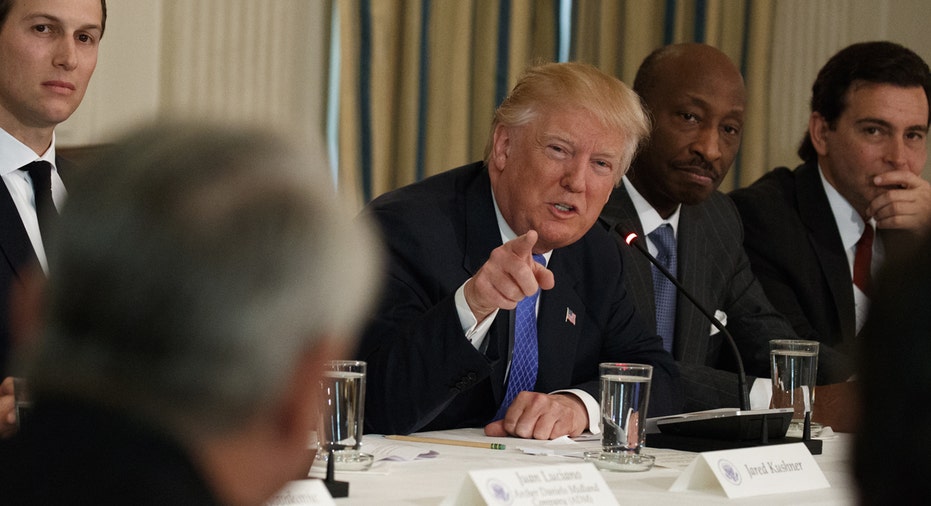S&P 500 Edges Higher After Trump Renews Jobs Pledge

U.S. stocks edged higher on Thursday, buoyed by energy stocks and a renewed pledge by President Donald Trump to chief executives of major U.S. companies to bring back millions of jobs to the United States.
At a meeting with about two dozen chief executives, Trump said he plans to bring millions of jobs back to the United States, without revealing a specific plan on how to counter a decades-long fall in factory jobs.
"We have seen quite a bit about that conference of business leaders with some extremely positive comments about the administration and their facilitation of a more pro-business-friendly environment," said Bruce McCain, chief investment strategist at Key Private Bank in Cleveland.
"That sort of endorsement from some of the major corporations around the country and around the world suggests to investors that this is a new era."
Trump is expected to introduce a series of proposals that could benefit companies, including tax reforms, a reduction in regulation and increased infrastructure spending that were a part of his election campaign.
Those promises have helped spur equities to record highs, with the S&P 500 up more than 10 percent since the election.
Investors, however, are looking for more clarity on the proposals, which has kept the benchmark S&P index in a tight daily trading range. It has failed to register a move of at least one percent in either direction since Dec. 7.
Trump is scheduled to address a joint session of Congress on Feb. 28.
The Dow Jones Industrial Average rose 34.72 points, or 0.17 percent, to 20,810.32, the S&P 500 gained 0.99 points, or 0.04 percent, to 2,363.81 and the Nasdaq Composite dropped 25.12 points, or 0.43 percent, to 5,835.51.
The Dow managed to notch a record high for a tenth straight session, the longest streak since 1987. The streak of gains is the longest for the index since March 2013.
Energy, up 0.5 percent, was the best performing of the major S&P sectors as oil prices climbed.
But retail stocks closed down 1.0 percent, plunging late in the session. Trump spoke favorably about an export-boosting border adjustment tax being pushed by Republicans in the U.S. Congress, although he did not specifically endorse it in an interview with Reuters.
The Nasdaq saw its biggest daily percentage drop this month, weighed down by a 9.3-percent drop in Nvidia . BMO cut its rating on the stock to "underperform" and reduced its price target by $15 to $85 per share.
L Brands plunged 15.8 percent to $48.94 as the worst performer on the S&P 500. The company reported weak sales at Victoria's Secret, its biggest business by revenue.
Boston Scientific lost 2.7 percent after the company recalled its Lotus Valve heart devices, citing reports of problems with the locking mechanism. Shares of rival Edwards Lifesciences rose 3.8 percent.
Advancing issues outnumbered declining ones on the NYSE by a 1.15-to-1 ratio; on Nasdaq, a 1.48-to-1 ratio favored decliners.
The S&P 500 posted 65 new 52-week highs and 2 new lows; the Nasdaq Composite recorded 132 new highs and 39 new lows.
About 7.11 billion shares changed hands in U.S. exchanges, compared with the 6.79 billion daily average over the last 20 sessions.



















